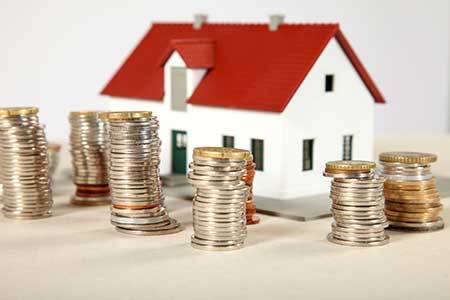 From my experience, most of the time the major selling factor in a home is the price. Location is very important too, but if you really interested in getting offers on your home, you need to make sure your price is set correctly for the market. This is an interesting article from the Las Vegas Review-Journal illustrating my point exactly!
From my experience, most of the time the major selling factor in a home is the price. Location is very important too, but if you really interested in getting offers on your home, you need to make sure your price is set correctly for the market. This is an interesting article from the Las Vegas Review-Journal illustrating my point exactly!
If your house is on the market, we’re going, to be frank.
Odds are good you’re asking too much for your home. And if you keep it up, you could drag down the whole market, local real estate agents say.
New reports show the number of homes languishing unsold on the Las Vegas market is on the rise. Industry observers blame the trend on unreasonable seller expectations based on median prices that gained 25 percent a year in 2013 and 2014 but have since gone flat.
“It’s like everybody in Clark County who wants to sell their house is getting in their car and looking in the rearview mirror,” said John Gafford, a Realtor with the Gafford Group of Simply Vegas. “Prices have been flat the last several months.”
What hasn’t been flat is time listed.
A Tuesday report from home-sales website Trulia found that the number of local homes on the market for 60 days or longer has grown to 57 percent, up from 52 percent a year ago.
The figures gel with recent statistics from the Greater Las Vegas Association of Realtors, which showed a 12.2 percent increase year over year in March in the number of single-family homes on the market without an offer.
“That’s a big deal. It tells you people are asking too much,” said association President Keith Lynam. “People are trying to guess where the market is going, and they’re guessing wrong. Since July, the median price hasn’t budged from $200,000 to $205,000.”
Look at sales versus list prices for an object lesson in how much of a problem overpricing can be.
Nearly 29,000 homes have sold through the association’s Multiple Listing Service in the last 12 months at an average sale price of $114.80 per square foot, Gafford said.
Among homes in escrow, the average list price is a nearly identical $114.20.
But the average listing price for the 7,894 homes sitting without an offer is $141. What’s more, those homes have been for sale for an average of 77 days, in a market where more than half of homes sold in less than 60 days.
There may be more at work here than seller greed, though.
As prices spiked in 2013 and 2014, bargains became harder to find and investors backed off, said Ralph McLaughlin, Trulia’s housing economist. Traditional, mortgage-backed buyers haven’t been able to pick up the slack: Nevada still leads in unemployment, and wage growth is flat, McLaughlin said. Plus, more than a quarter of locals owed more than their home was worth at the end of 2014, compared with a national average of 17 percent. Eleven percent – nearly twice the national average of 6 percent – are delinquent.
“A slowing of the market suggests two things: Either there aren’t enough buyers entering the market, or those who are selling existing homes are pricing them too high”, McLaughlin said.
It becomes obvious that pricing is an issue if you consider the market under $200,000, which just enjoyed its best month-to-month sales jump since 2006, Lynam said.
“The buyers are there. You have to price right,” he said.
The issue isn’t at a crisis point, McLaughlin said. Nevada’s average of 57 percent listed after 60 days is lower than the national rate of 60 percent. Helping the market: Employment growth is strong, and housing has slowly stabilized, he said.
But local observers say anything that keeps large chunks of homes on the market too long can erode consumer confidence. Nor does any outlying trend help an already weak recovery.
“Our market is so raw and tenuous that anything outside the norm is extremely concerning,” Lynam said. “You have vacant homes, you have under-water homes, you have rising notices of default – you have a lot of things in play here. You add this to the mix, and I’m very concerned about it.”
The fix is both complicated and simple – complicated because it’s difficult to argue with sellers who believe their home is the best castle on the block, and simple because sales agents can walk away if a client won’t listen.
“My message to Realtors is that they need to educate sellers. If that means turning around and walking out without the listing, then turn around and walk out without the listing,” Lynam said.
You can read the original article at http://www.reviewjournal.com/news/las-vegas/vegas-house-you-re-selling-drop-the-price
